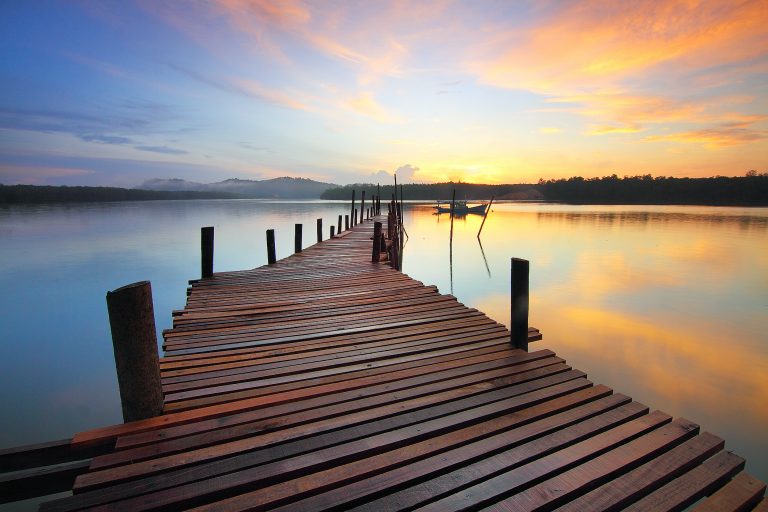Have you ever thought that more money or a higher status in the world might make you happier? If so, lessons from Bhutan, The Kingdom of Happiness, might indicate otherwise.
Bhutan is a country that knows a thing or two about happiness. This tiny Buddhist kingdom in the Himalayas prioritizes Gross National Happiness (GNH) over Gross Domestic Product (GDP) and even has a minister of happiness: my kind of place!

Bordering India, China and Tibet, Bhutan is landlocked and difficult to access due to the mountainous terrain. This isolation has allowed Bhutan to retain its unique character.
It sounded like one of the few places left on earth that hadn’t been homogenized by globalization. When the opportunity arose to visit for 10 days this Spring, I jumped at the chance.
Things that made me fall in love with Bhutan sight-unseen:
- TV was banned in Bhutan until 1999.
- Before the 1960s, Bhutan had no roads, cars, electricity or phones.
- The sale of tobacco is banned in Bhutan.
- Bhutan is the first country in the world with specific constitutional obligations to protect the environment. At least 60% of the nation must remain forested. Presently, about 70% of the country is in its natural state.

- Plastic bags are prohibited
- Killing an endangered species can get you life in prison. They are one of the last refuges for critically endangered species like Bengal tigers and snow-leopards.

- Bhutan has the highest unclimbed mountain in the world (24,840 feet). The mountains are sacred to the Bhutanese so they’ve banned climbing above 19,685 feet.

- Thimpu is the only capital city without a stoplight! A stoplight was installed in the past, but the people protested and so they went back to a single, white-gloved policeman gently assisting traffic through the congested area.

- Bhutan is the only country that absorbs more CO2 than it emits!
- No tourists were allowed into Bhutan until 1974. Even today, all tourists (except Indians) must travel with a local guide.
- McDonalds is not allowed in Bhutan (for health reasons).
- Tantric Buddhism is the official religion and it’s state sponsored.

- Despite its relative poverty, healthcare and education are free for all residents and visitors.
- It’s one of the only countries where biodiversity is increasing. They regularly find new species!
Some other unique things about the Kingdom of Happiness:
- Many of the police officers don’t even have bullets in their guns (it’s highly unlikely that they’ll have to use them).
- For 2 months out of the year, they are prohibited from eating meat. This is to honor the Buddhist principle of non-harming. A large black-market has sprung up, however, and I was told many do not follow this rule.
- Due to their recognition of animals as kin, there are no slaughterhouses in Bhutan (but they do import lots of meat from India, which perhaps negates this ideal).

- Their beloved king voluntarily gave up his power so that the people could have a democracy.
- Sky burials still happen in parts of Bhutan. This is a funeral practice in which a human corpse is placed on a mountaintop to decompose while exposed to the elements or to be eaten by scavenging animals, especially birds. The function of the sky burial is simply to dispose of the remains in as generous a way as possible.
- If someone cuts down a tree to aid in the construction of their house, they are required to plant a new tree in its place.
- There are prayer flags everyplace and Buddhism is very much central to their way of life; this includes a reverence for nature and belief in various myths, superstitions and legends.

- Speaking of legends, the phallic symbol is believed to bring good luck and is painted on houses and signs throughout the country. This came about because of the antics of a 15th century Tibetan saint referred to as the “Divine Madman” who used unconventional means to challenge the status quo and redefine enlightenment.
- A family home
- Art Gallery
- Until recently, only 8 pilots in the world were qualified to fly into Bhutan, into what has been dubbed the most dangerous landing in the world. The short runway sits in a narrow valley at the base of jagged, 18,000 foot peaks and the wings of the plane get VERY close to the surrounding hillside! This video will give you a sense of it.
- At one point, they had a zoo but then someone realized that keeping animals captive for the purposes of human entertainment wasn’t very enlightened. They simply opened the cages and let the animals walk or fly back into the jungle. This worked well except for the tame Takin who wandered the streets bewildered and unable to care for themselves. They were placed back in the cages to be cared for and this is why the zoo only contains Takin.

Lessons from Bhutan
Although I absolutely love what Bhutan represents, and had a (mostly) fabulous trip, the reality is that they are, of course, not a utopian society.
Bhutan is a rapidly developing country, doing their best to preserve the old while making space for the new. The people have now seen what they are missing and, like humans everywhere, many want all the conveniences and luxuries of the modern world.
People have found a way to get around many of the rules. Plastic bags were pretty ubiquitous and I did see people smoking.
There was a lot of trash on many of the hiking trails and in the cities. Although “slash and burn” is officially banned, there was often a haze hovering over the cities.
Our Bhutanese guide said that GNH was a nice idea and marketing tool, but that he thought the people were actually happier 50 years ago. Life was simpler when they didn’t know what they were missing. Now more and more people are moving out of the mountains and into the cities, wanting more money and stuff, no longer content with the traditional ways.


He thinks the people are becoming less and less happy and the data support his theory. For the first time, Bhutan has some homeless people and some are becoming addicted to drugs.
The pull to acquire material things is so strong! I certainly see it everyday in my own country. But Bhutan is an interesting case study on how the craving for more money and more stuff often leads to the opposite of happiness.
Seeing this firsthand served to reinforce my minimalist tendencies, reverence for the natural world and emphasis on connection over consumption.

Our economy and nation are based on “consumption” which means using up a resource or, in medicine, a progressive wasting away. Perhaps this word is very telling and Bhutan is more developed than we are in some important ways.
Bhutan, I thank you for all that you have preserved and the ideals that you represent. I thank you for saving some habitat for our four-legged, finned, rooted and winged friends. Thank you for sharing your jagged peaks, quiet, and clear mountain air with me. Thank you for allowing me the privilege of visiting.
Your stillness, slow-pace, and active cultivation of what really matters stands as a beacon of hope and a breath of fresh air in a chaotic world.
I wish you well in your transition and hope you can hold fast to what you know is the best way to happiness.
May we all remember what is really important and live our lives accordingly.
Tashi Delek (best wishes in Bhutanese),
Erin

If you want to start deliberately upping your happiness quotient, I reduced the price on my 6-week eCourse from $89 to $59. For a limited time only, you can get Mindfulness 101: The Power of Pausing, 6 weeks of guided meditations that can increase your ability to find calm, stillness and happiness, for less than $10 a week. For more information, please click here.
Wishing you your best summer ever!









 Erin believes that narrow boxes are for shoes and not for people and she hopes you'll join her tribe on the mindful path to freedom!
Erin believes that narrow boxes are for shoes and not for people and she hopes you'll join her tribe on the mindful path to freedom!

